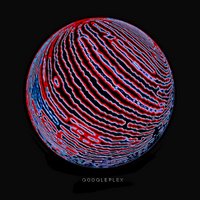Googolplexic

I recently scored a regular writing gig for the premier brand of a major Minnesota radio empire. The ideal nature of my contribution is the requirement that I do field work for future broadcast locations, all from the comfort of my home office. That is, I create capsule geographies of distant sites. I am a zealous advocate of all things geographic, from compass, sextant, and GPS to globe and atlas. I can happily pore for hours over demographic minutiae, especially if it's attached to a map. So to glean and express the nature of a place is right up my fully explored alley.
Two exceedingly powerful tools provided free of charge by Google are making my research much easier. The first is Google Earth, probably the coolest thing readily available on the internet to someone with my peculiar obsession with images. Google recently acquired the massive Keyhole Graphics database of satellite images (previously available only by subscription) and made basic accessibility available for free--you can upgrade via subscription to finer options. But the basic version alone is an amazing tool, allowing you to get a fairly close bird's eye view of any place on the earth's surface, including highly detailed shots of the world's major cities. For instance, you can discern a person standing in Manhattan's Washington Square Park from their shadow. And you can select layers of information to add: if there's an ATM in Ulan Bator, you can feature it; in fact, you can add info yourself via something akin to a bulletin board. You can tilt the view and build in topography, including the proportions of buildings. I just completed some research of a venue in Miami, and this capability helped me to understand the context of the site. Absolutely no substitute for being there, but a tremendous aid to navigating the imagination.
Last night, as I was seeking information about bilingualism and Miami's latest census, I noticed a new search option at the bottom of the Google results page: Try searching for [insert topic here] on Google Book Search. I had heard rumblings about this project and some attendant controversy, but I had no idea the concept was reality. The basic idea is Google and a host of libraries (Stanford, Harvard, Oxford and the University of Michigan) are scanning every book they can get their hands on and making the text susceptible to the unfailing eye of the search engine. The researcher can then view sample pages to see if the content fits, and purchase the book or find a library copy via a nearby link. This is certainly more efficient than delving into a card catalog, marching off to find the book, and browsing accordingly. And for my purposes, the viewable text gave me the information I wanted. The spiraling depths of this pool of knowledge are unfathomable in the truest sense, but suddenly much less forbidding because of this tool.
The Authors Guild has decided to sue Google, alleging massive copyright infringement at the expense of the rights of individual writers. Google counters that it is engaging in what is called "fair use" under copyright doctrine. One cannot cut and paste the displayed text, attempts to print default to an informational page about the book, random pages are immune to display, and individual authors can request that their works be removed from the database. Google sells advertising on each page, thus this venture is far from a grand philanthropic gesture. Personally, on the day my name first rides the spine of a tangible volume, I will freely embrace the promotional potential of this search capability.
This dispute provides an excellent lesson in the complexities of internet law, and perhaps the best example yet of the medium's educational potency. Maybe an ASCAP-like arrangement will resolve the dispute, for I'll be the last person to deny a writer's entitlement to a few meager shekels. But shouldn't the aggrieved author focus on this question: how does this display of my work hurt me? Could it somehow hinder sales?? I don't think so. And one can't deny the revolutionary nature of this development; how a musty backshelf text on sociology can again find the light of day, if only digitally. Suddenly, I am well-equipped with anecdotes and figures about the post-Cuban-revolution transformation of Miami's Little Havana neighborhood.

<< Home